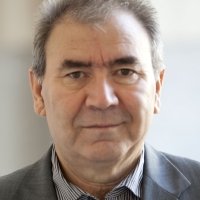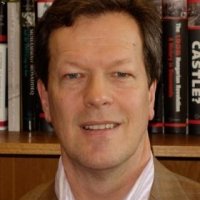Stalin and the Turkish Crisis of the Cold War, 1945-1953
Jamil Hasanli, former Wilson Center scholar and professor of history at Baku State University will discuss his latest book, "Stalin and the Turkish Crisis of the Cold War, 1945-1953." Hasanli will explore the ups and downs of Soviet-Turkish relations during and immediately after World War II. Hasanli draws on declassified archive documents from the United States, Russia, Armenia, Georgia, Turkey, and Azerbaijan to recreate a picture of the time when the 'Turkish crisis' of the Cold War broke out explaining why and how the friendly relations between the USSR and Turkey escalated into enmity, led to the increased confrontation between these two countries, and ended up with Turkey's entry into NATO. Hasanli uses recently-released Soviet archive documents to shed light on some dark points of the Cold War era and the relations between the Soviets and the West.
Joining Hasanli on the panel is Malcolm Byrne, deputy director and director of research at The George Washington Univeristy's National Security Archive.
28 February 2012, 4:00 - 5:30 p.m.
Reception to follow
Woodrow Wilson Center
RSVP: coldwar@wilsoncenter.org
Speakers

Former Member of the Parliament, Republic of Azerbaijan

Woodrow Wilson Center

Deputy Director, Director of Research at the National Security Archive
Hosted By

History and Public Policy Program
A global leader in making key archival records accessible and fostering informed analysis, discussion, and debate on foreign policy, past and present. Read more


Cold War International History Project
The Cold War International History Project supports the full and prompt release of historical materials by governments on all sides of the Cold War. Read more


Global Europe Program
The Global Europe Program is focused on Europe’s capabilities, and how it engages on critical global issues. We investigate European approaches to critical global issues. We examine Europe’s relations with Russia and Eurasia, China and the Indo-Pacific, the Middle East and Africa. Our initiatives include “Ukraine in Europe”—an examination of what it will take to make Ukraine’s European future a reality. But we also examine the role of NATO, the European Union and the OSCE, Europe’s energy security, transatlantic trade disputes, and challenges to democracy. The Global Europe Program’s staff, scholars-in-residence, and Global Fellows participate in seminars, policy study groups, and international conferences to provide analytical recommendations to policy makers and the media. Read more
